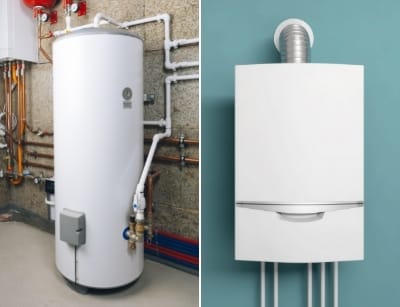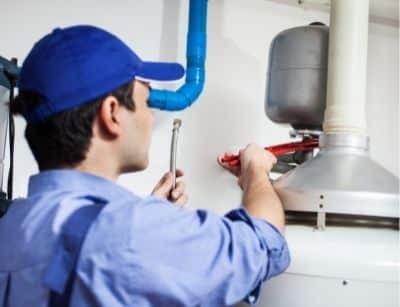
The Basics of Water Heaters
With summer coming to a close, that means back-to-school time is almost here. Students and teachers all around the country will be re-entering the classroom as they begin the next school year. But who says students are the only ones that will be learning new things? Homeowners, too, can learn a little something new this year - say, about the basics of water heaters?!
Yes, this of course may not sound like the most interesting topic. But like it or not, many people rely on water heaters for adequately functioning plumbing systems inside their homes. Homeowners and their families should understand the different types of water heaters, how to maintain their water heaters, and what signs to watch out for that may indicate repairs are needed. Read on for all of this information and more!
Water Heater Types
Let’s begin with the basic types of water heaters. There are many options out there on the market, all of which operate differently and offer different benefits. Here are some examples:
- Electric-powered water heaters - able to heat water immediately and have high efficiency relative to other types
- Gas-powered water heaters - relies on a furnace and convection to heat the water, after which it stores the water for future transportation to other parts of the home
- Tank-free water heaters - uses heated coils to heat water, which can occur extremely quickly
There are many other types of water heaters as well, all of which operate slightly differently but ultimately achieve the same goal of heating water for use by homeowners and their families.
Water Heater Maintenance
Homeowners should be sure to keep up with their water heater maintenance. Specifically, they should take some preventative measures in order to limit costly repairs and extend the lives of their water heaters:
- Assessing potential damage (cracks, leaks, rust, etc.)
- “Flushing” the water heater to prevent / remove sediment buildups
- Insulating the water heater itself, as well as the surrounding pipes
- Lowering the temperature (~120 degrees) to prevent overheating
Simply doing one or two of these things can make a huge difference. Of course, doing all of them can make the biggest difference long-term!
Signs That Repairs Are Needed
In addition to consistent maintenance, homeowners should be on the lookout for any signs that repairs are needed. After all, they could do all the right things maintenance-wise, but there could be problems that are out of their control. Some common signs that may suggest repairs are needed include water discolorations, corrosion, abnormal sounds, and abnormal water patterns (temperature, length of sustained hot water, etc.).
If homeowners notice any of these signs, they should seek professional help as soon as possible. The water heater is an integral part of the plumbing system and can affect many plumbing appliances and fixtures downstream, so catching and addressing these issues as early as possible can save homeowners on potentially very costly repairs.
About Towers Plumbing
Towers Plumbing of Murray, UT has been providing expert residential and commercial plumbing solutions for over 75 years. Using the industry’s latest technologies, their team of experts provides expert workmanship, fast turnarounds, top-notch customer service, and satisfaction guaranteed for each and every one of their clients. Give them a call for water heater help today!


